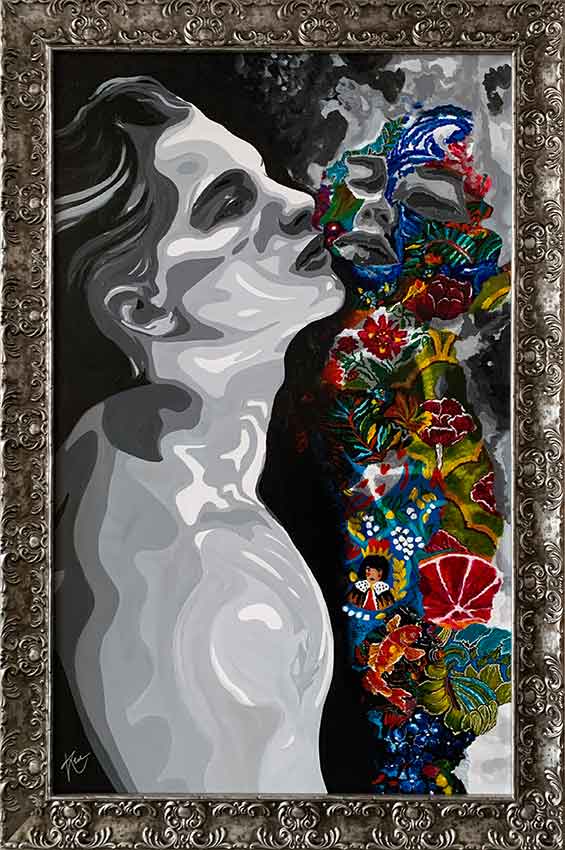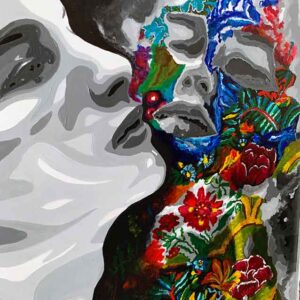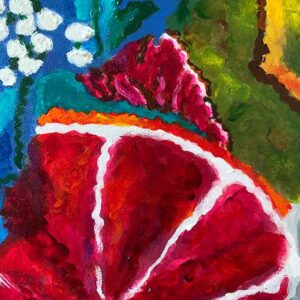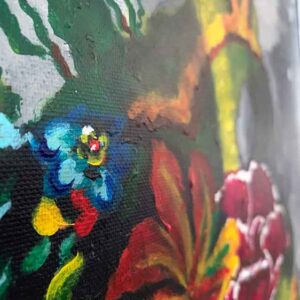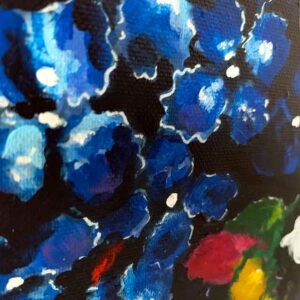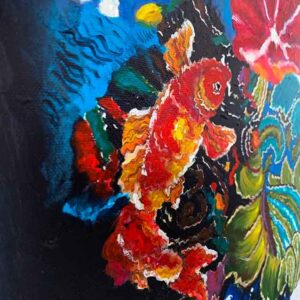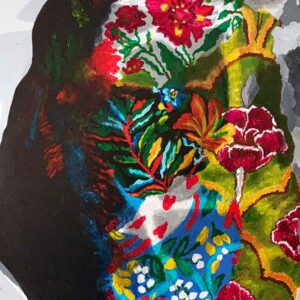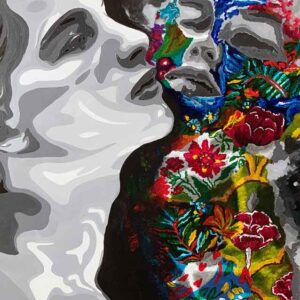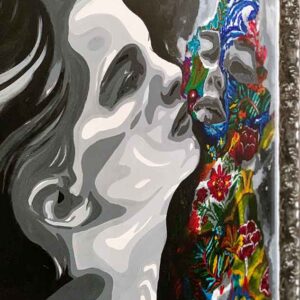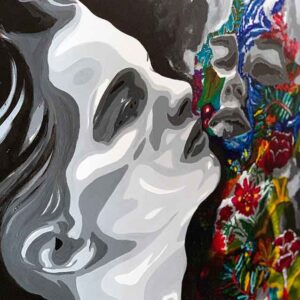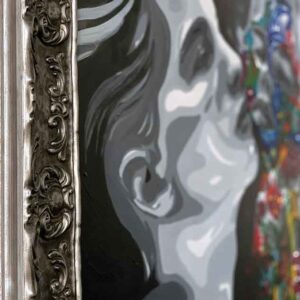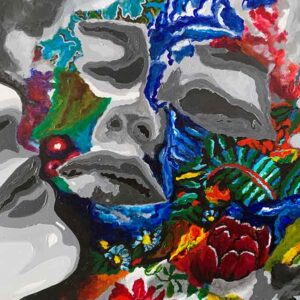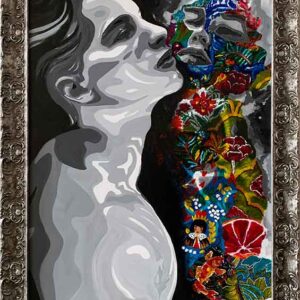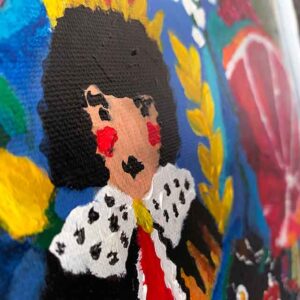Narcissus
ACRYLIC ON CANVAS 80X130CM
A tragic icon of Greek mythology, Narcissus was known for his remarkable beauty that had countless admirers, who gave up their lives to prove their devotion. His revered life soon came to a tragic end when the goddess of revenge, Nemesis, decided to curse him after hearing about his tales of arrogance. After a hunting trip, when Narcissus tried quench his thirst from a pool of water, he looked at his own reflection and fell madly in love, not knowing that the reflection was his own. Not being able to have his love reciprocated, Narcissus’ burning desire led him to burst into flames and from his ashes grew a flower that later became known as the Narcissus flower.
This canvas artwork captures that enchanting moment when Narcissus laid eyes on his own reflection and became an elusive object of his own unbound desires. The swirl of colours and patterns emote the intensity of the yearning that one might feel when love and passion takes over. With this depiction of Narcissus, we are made to reflect on the boundaries of self-perception. At what point does self-love become self-obsession? When does self-care veer into self-absorption? If self is all that matters, then why care what everybody else thinks?
Narcissus
ACRYLIC ON CANVAS 80X130CM
A tragic icon of Greek mythology, Narcissus was known for his remarkable beauty that had countless admirers, who gave up their lives to prove their devotion. His revered life soon came to a tragic end when the goddess of revenge, Nemesis, decided to curse him after hearing about his tales of arrogance. After a hunting trip, when Narcissus tried quench his thirst from a pool of water, he looked at his own reflection and fell madly in love, not knowing that the reflection was his own. Not being able to have his love reciprocated, Narcissus’ burning desire led him to burst into flames and from his ashes grew a flower that later became known as the Narcissus flower.
This oeuvre captures that enchanting moment when Narcissus laid eyes on his own reflection and became an elusive object of his own unbound desires. The swirl of colours and patterns emote the intensity of the yearning that one might feel when love and passion takes over. With this depiction of Narcissus, we are made to reflect on the boundaries of self-perception. At what point does self-love become self-obsession? When does self-care veer into self-absorption? If self is all that matters, then why care what everybody else thinks?
